If you are a girl or a woman who has had periods before, it is likely that by now you have knowingly or unknowingly encountered a menstrual myth. Menstrual myths are (mis)beliefs and taboos related to menstruation that are followed for reasons that have no scientific basis to them. But how did these myths originate? Earlier in the absence of scientific methods, the only way to unravel this mysterious phenomenon called menstruation was to draw deductions from what is externally observed and experienced during this process. Causes and effects of menstruation were falsely perceived based on such observations like periodic shedding of blood from the private parts of the females which is sometimes accompanied by pain and sickness. For the primitive society a combination of blood and pain suggested danger against which proper precautions must be taken. These falsely perceived causes and effects of menstruation and exaggerated precautions against falsely perceived dangers of menstruation have over the time led to the various myths around the subject and contributed towards the taboo nature of it.
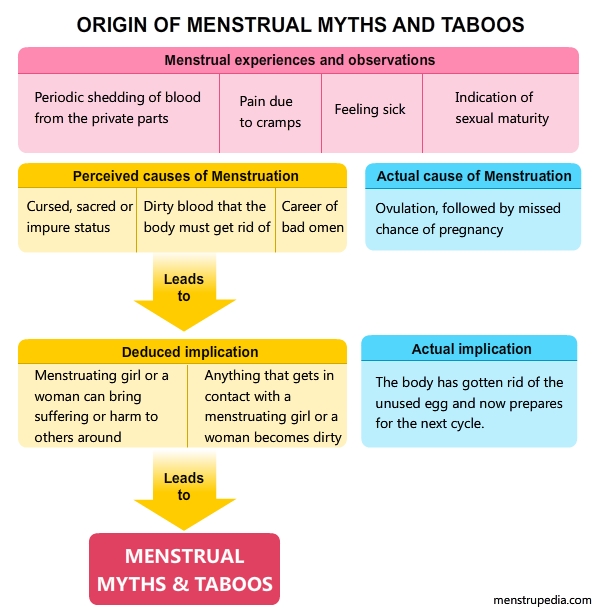
There are many different kinds of menstrual myths followed in different communities around the world. Following are some of the myths related to menstruation and how they have been deduced from the observations and experiences related to menstruation.
In primitive times, menstrual myths were such that they empowered the status of a woman in the society. Due to a visible correlation between the menstrual cycles (which were then a mysterious phenomenon) and the cycles of moon, it was believed that menstruating women poses cosmic powers to control the elements of nature like sun, moon, climate and seasons. Menstrual blood was considered so powerful, magical and even dangerous that each of the primitive societies developed their own version of taboos and myths related to menstruation and made it concrete and unquestionable so that it passes from one generation to next unhindered. Majority of menstrual myths that have survived till date deem menstruating women impure and even a threat to well being of others. Such a degrading outlook towards women only goes on to suggest a backward and outdated value system that would do more harm than good to the society.
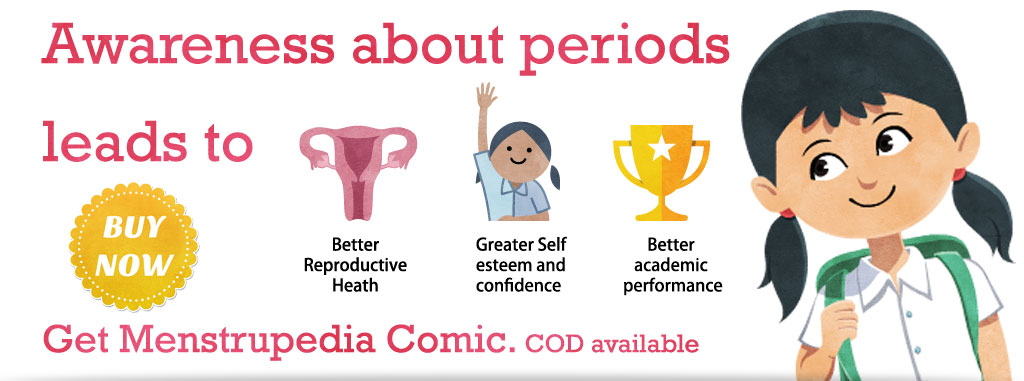
Did you know that it wasn’t until the mid 18th century that menstruation was known to be related to ovulation? Scientific experiments to test the factor of “impurity” in menstrual blood were not undertaken until 1920s. It is then understandable that some of the myths our ancestors lived by came to be because of the lack of information regarding what exactly was going on inside our bodies. Yet, despite having known that menstrual fluid is nothing but a harmless mixture of blood, tissues and small amounts of hormones for about a century now, the culture of silence around the subject keeps menstrual myths unquestioned and inviolable.
It is ironic that many of these myths are passed on by the elder female members to the younger female members in a family. It is high time that girls and women stop bearing the stigma; and abstaining from any activity that is allowed for others in general, should be a personal choice and not a compulsion due to a taboo or myth. This is possible only if we as an individual question the rationale behind each and every belief regarding menstruation that we have been following in the name of culture, tradition or taboo and prevent these myths from propagating any further. With our collective efforts we can look forward to a society that holds menstruation as a natural and essential biological process instead of a curse or stigma.
Sources:
http://www.motherjones.com/blue-marble/2012/08/menstruating-women-do-not-attract-bear-attacks
http://www.motherjones.com/blue-marble/2012/08/do-menstruating-women-attract-shark-attacks
http://www.mum.org/menotox2.htm
http://www.mum.org/menotox.htm
Sharing simple facts: useful information about menstrual health and hygiene (made available by Ministry of Rural development, Govt Of India in collaboration with UNICEF India). Available at: http://www.indiasanitationportal.org/sites/default/files/MHM_Book.pdf.
http://www.womenpriests.org/traditio/unclean.asp
http://www.womenpriests.org/body/ranke.asp
http://www.lucinebiotech.com/vestiges-of-the-red-tent-myths-mysteries-and-menstruation/
http://myperiodblog.wordpress.com/2010/11/22/menstruating-women-in-religious-temples/
http://blogs.scientificamerican.com/context-and-variation/2011/11/16/menstrual-synchrony/
http://blogs.scientificamerican.com/context-and-variation/2011/09/09/menstruation-blood-and-tissue/
Academic research conducted by Aditi Gupta (founder, www.menstrupedia.com).
The Curse: A Cultural History of Menstruation By Janice DeLaney, Mary Jane Lupton, Emily Toth
Shaikh, Sa’diyya. 2003. “Family Planning, Contraception, and Abortion in Islam: Undertaking Khalifah in Sacred Rights: The Case for Contraception and Abortion in World Religions, ed. by Daniel C. Maguire. New York, NY: Oxford University Press.


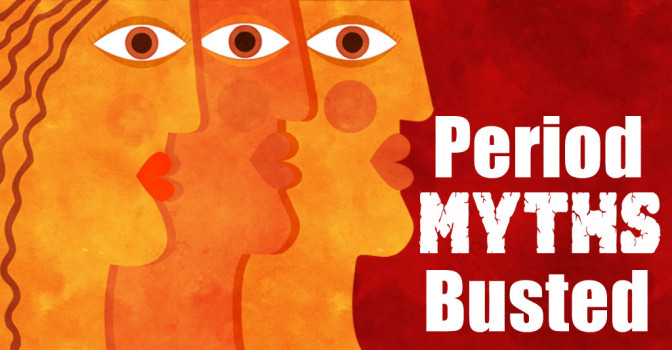

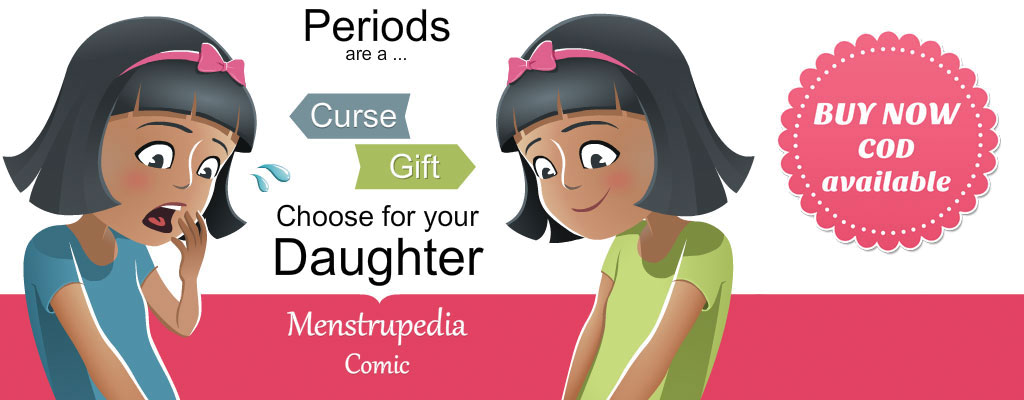

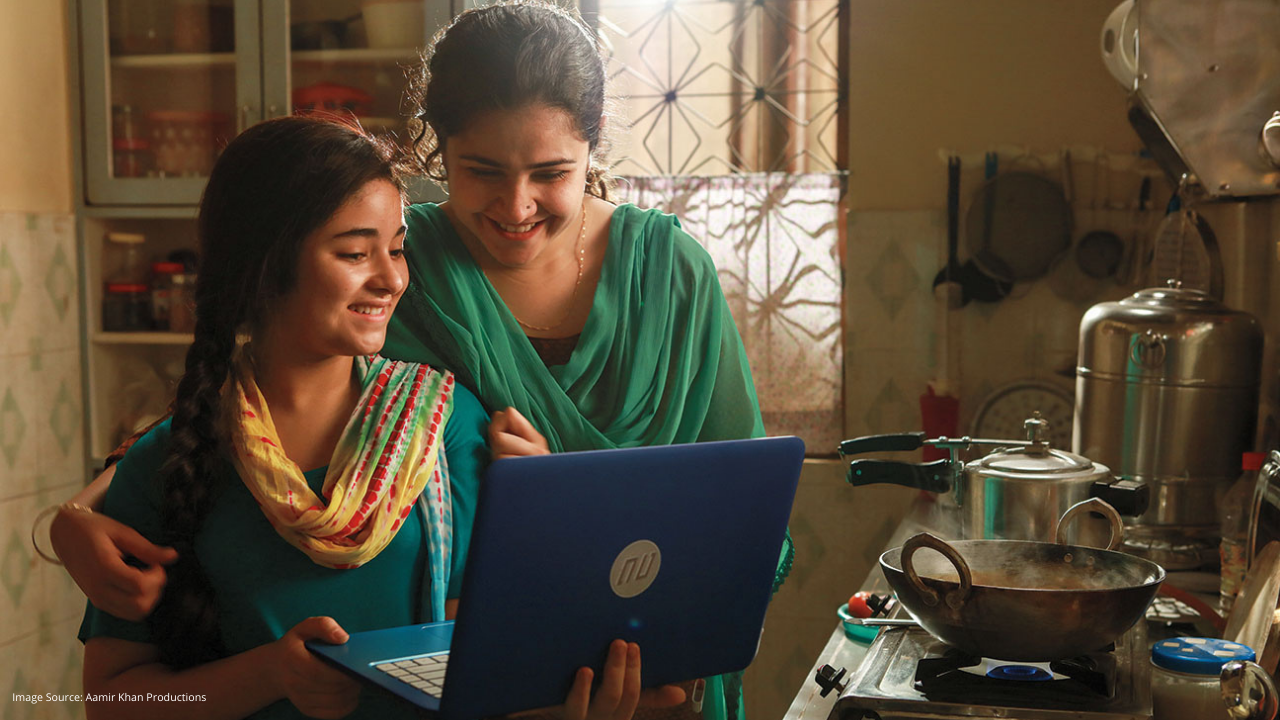


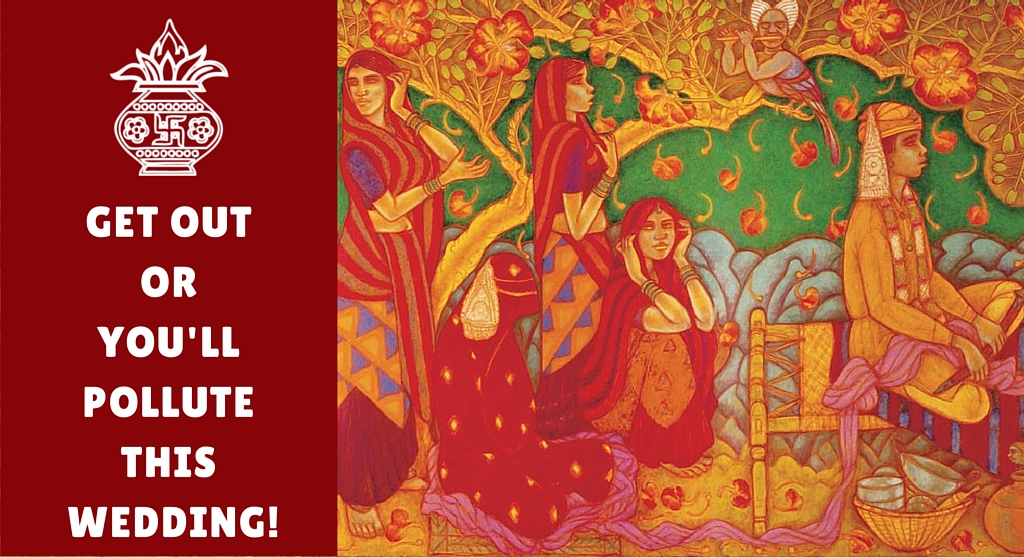
6 Comments
Great compilation. Our world really needs to get rid of such myths.
However I believe you have done a thorough research on this piece, I have few questions/ suggestions. One regarding conceiving during menstruation, although whats stated there is true, I suggest isn’t its best to avoid sexual intercourse during menstruation due to increased risk of infection.. or is that too a myth? I have read in many articles where doctors suggest so for maintaining better hygiene.
Second regarding Sharks and menstruation, although there is no scientific proof of this, many diving sites advise not to take the risk. As sharks have unmatched sense of smell and can sense blood from miles away, they might not be attracted to this particular smell but some might. 95% of the underwater world is still unexplored!
Also, there is something which I experienced in real life as well, although not with sharks but other aquatic spices. I was menstruating during my first scuba diving experience, fortunately the site was not prone to Sharks but I was constantly chased but some small fish which even ended up biting me a couple of times! I took a chance because most theories I could find on the internet consider it safe. Well, in my case it was not life threatening but is wasn’t pleasant either. I can only thank God that there were no sharks around.
Would look forward to your reply. Keep up the good work.
Thanks Priyanka for your appreciation and comment :).
Regarding risk of infection due to sexual intercourse during menstruation:
Sexual intercourse during menstruation increases the risk of spreading infection if either of the partners is infected with a sexually transmitted disease, but that risk still remains even when the female is not menstruating.
The vagina contains a range of different microorganisms, some good and some bad. With the help of the good microorganisms vagina maintains a slightly acidic environment (ph 3.5 to 4.5) to prevent the bad microorganisms from thriving. During menstruation, the blood (which has a ph of 7.4) in the menstrual fluid alters the ph of the vagina making the female more susceptible to infection from the bad microorganisms. Changing ph is part of the reason why many women who suffer from recurrent vaginal infections find that their menstruation triggers it. These infections may or may not spread through sexual intercourse.
In both the above cases a contraceptive like condom can drastically (though not 100%) reduce the risk of spreading infection through sexual intercourse. Menstrual fluid is a natural bodily fluid that is harmless in itself and does not cause any kind of infection. So if both the partners are healthy, there is no reason to avoid sex during menstruation unless it is against a personal preference or cultural belief. On a different note, many women who are menstruating find that sex leading to an orgasm relives cramps and uplifts mood.
For further reading:
http://eon.businesswire.com/news/eon/20100217005268/en
http://std.about.com/od/riskfactorsforstds/f/Does-Period-Sex-Increase-STD-Risk.htm
http://www.netdoctor.co.uk/ate/sexandrelationships/sex/200501.html
http://www.avert.org/sex-questions.htm
http://www.healthcaremagic.com/articles/Sex-during-menstruation/7408
If you have come across a study or an article that points to a potentially serious risk of infection during menstruation, could you please share it with us?
Thank god there were no sharks :). Whether menstruating or not, as a precautionary measure one would not take chances with sharks. Stay safe and wish you good luck with scuba diving in future.
brilliant job.. i really hope and want from the bottom of my heart that all these myths and the mental block towards women goes away….infact it is so shameful that even today we conduct kumari pujas which is nothing but worshiping women till the time they are ‘pure’ also women are not allowed to touch the ‘narayan sila’ (sorry dont know the hindi or english for this) as grown up women are not ‘pure’
all these mental blocks really needs to go away and it can only start with the mother/grandmother/aunt/sister of the family. they need to believe in this first so that further correct education is ensure.
In earlier times there were no such advanced level of hygiene and sanitation as of today . So as the women had to clean up many times a day without hands and feet being properly sanitized as earlier people used to wash hand with soil or ashes ,so they were restricted for kitchen and cooking . but i think as of now there should nt be such restriction as there are better options of self hygiene.
Regarding religions that disparage menstruation, why do you suggest that a women “might like to follow these practices out of respect for the religious sentiments of others.”
Should you not also suggest that a woman is free to make up her own mind about these practices, regardless of the beliefs of others? How long do women have to put the beliefs of others before their own?
What about the religious sentiments of the menstruating woman? Does she have any right to believe what she wants? If she did, she might find that many other women agree with her that it is time to bid good riddance to the oppressive and misogynistic practices that view a woman’s body as polluting and menstruation as impure.
I agree with Vidhi on her point about asking women in earlier times to stay away from the kitchens. To add to it, i remember getting into an argument and a rather heated debate about such taboos and i got a really satisfying answer. I’m not sure if its true, however it appeals to my sense.
Well, so the reason why women were asked to stay away from the kitchens was that during the menstrual cycle, most women would experience discomfort and pain. And just so they got a much required break from exhausting themselves with kitchen work, they were asked to abstain from cooking and stuff…